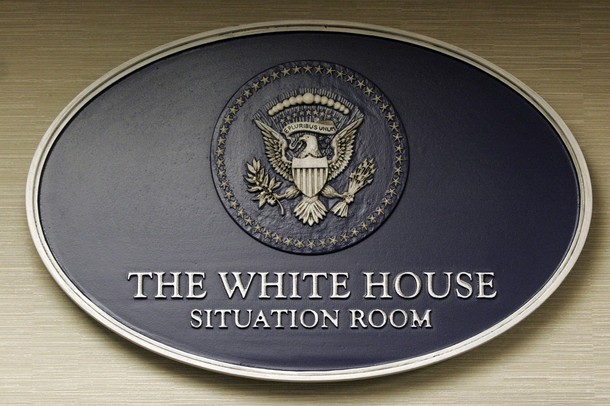
From Henry A. Kissinger and James A. Baker III, the Washington Post: Like most Americans, we believe that the United States should always support democracy and human rights politically, economically and diplomatically , just as we championed freedom for the captive peoples of the Soviet empire during the Cold War. Our values impel us to alleviate human suffering. But as a general principle, our country should do so militarily only when a national interest is also at stake. Such an approach could properly be labeled “pragmatic idealism.”
Libya is arguably an exception to the rule. While the United States did not have a vital interest at stake in Libya, a limited military intervention solely on humanitarian grounds could be justified. …
As events unfold in North Africa and the Middle East, it is imperative that we look at each country individually. In this spirit, we offer a few guidelines: …
First, when using force, we must establish a clear and specific goal. The objective of protecting civilians is consistent with our values. But it is inherently difficult to keep such an effort limited. The need for humanitarian intervention almost invariably arises from the necessity of protecting populations from their own governments or from the collapse of government altogether. This provides incentives for strategic foreign policy considerations, such as regime change or nation building. But if we articulate a goal of regime change in conjunction with military intervention, we will be expected to employ the means required to effect it. A disconnect risks confusion among allies, adversaries and the American public, as well as mission creep. Failure to achieve proclaimed objectives then turns into a strategic setback. …
Third, we must know exactly what and whom we are supporting. In Libya, we have in effect taken sides in a civil war. But it is not enough to oppose a despot. We need some assurance that a succession would not create its own major problems; therefore, it is important to have a concept of order after regime change. The last thing the region needs is a series of failed states. …
Sixth, and most important, the United States must develop a firm and differentiated understanding of its vital national interests. Not every upheaval in the region has the same origin or remedy. The Arab Spring has the potential to become a great opportunity for the people of the region and the world. Over time, fostering democracy may provide an alternative to Islamic extremism; it may also, in the short term, empower some of its supporters. We need to develop a realistic concept of what is achievable and in what time frame.
Henry A. Kissinger was secretary of state from 1973 to 1977. James A. Baker III was secretary of state from 1989 to 1992. (photo: Getty)
Image: Getty%20Images%205%2018%2007%20inside_0.jpg
